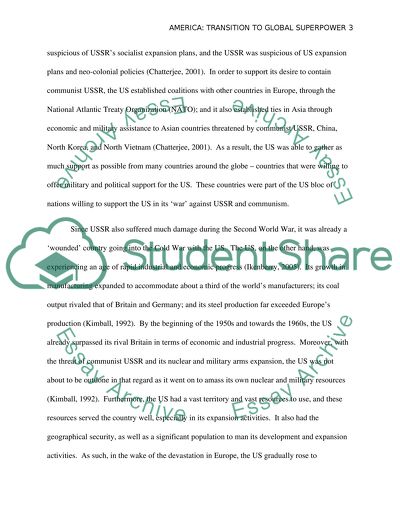Cite this document
(“America: Transition to Global Superpower Research Paper”, n.d.)
America: Transition to Global Superpower Research Paper. Retrieved from https://studentshare.org/history/1435752-america-transition-to-global-superpower
America: Transition to Global Superpower Research Paper. Retrieved from https://studentshare.org/history/1435752-america-transition-to-global-superpower
(America: Transition to Global Superpower Research Paper)
America: Transition to Global Superpower Research Paper. https://studentshare.org/history/1435752-america-transition-to-global-superpower.
America: Transition to Global Superpower Research Paper. https://studentshare.org/history/1435752-america-transition-to-global-superpower.
“America: Transition to Global Superpower Research Paper”, n.d. https://studentshare.org/history/1435752-america-transition-to-global-superpower.


